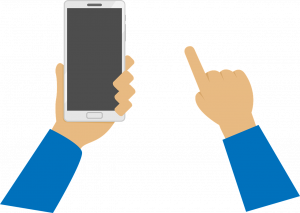 AbilityNet have provided a short video clip on YouTube that illustrates how Caroline works on her computer with a keyguard on a small Cherry keyboard. Manual dexterity difficulties can affect the ability to use the keyboard or mouse with ease, as well as making small buttons on a mobile phone hard to use and any fiddly controls.
AbilityNet have provided a short video clip on YouTube that illustrates how Caroline works on her computer with a keyguard on a small Cherry keyboard. Manual dexterity difficulties can affect the ability to use the keyboard or mouse with ease, as well as making small buttons on a mobile phone hard to use and any fiddly controls.
The upper limbs, hands and fingers may be stiff and have restricted movements, lack coordination or be hard to control. There are many reasons for having dexterity difficulties and some are related to neurological or medical conditions such as cerebral palsy, arthritis, Parkinson’s disease, brain injury and circulatory disorders as well as difficulties feeling items (sense of touch / numbness).
The ZDNet article ‘Social Networking: Not as inclusive as you might think‘ by Simon Stevens (2007), who founded the Wheelies on-line disco in Second Life says, “Designers don’t tend to think about how much mouse movement is required to access common functions, for example,” … “That’s a big issue for people who have problems with dexterity.”
WebAim offer a series of webapges that cover many aspects of mobility and motor impairments with more information on Working Together: Computers and People with Mobility Impairments from the University of Washington.
SCIPS has information on the challenges and subjects associated with Physical Disabilities with strategies. The W3C Web Accessibility Initiative (WAI) provides a collection of resources on how people with disabilities use the web.
